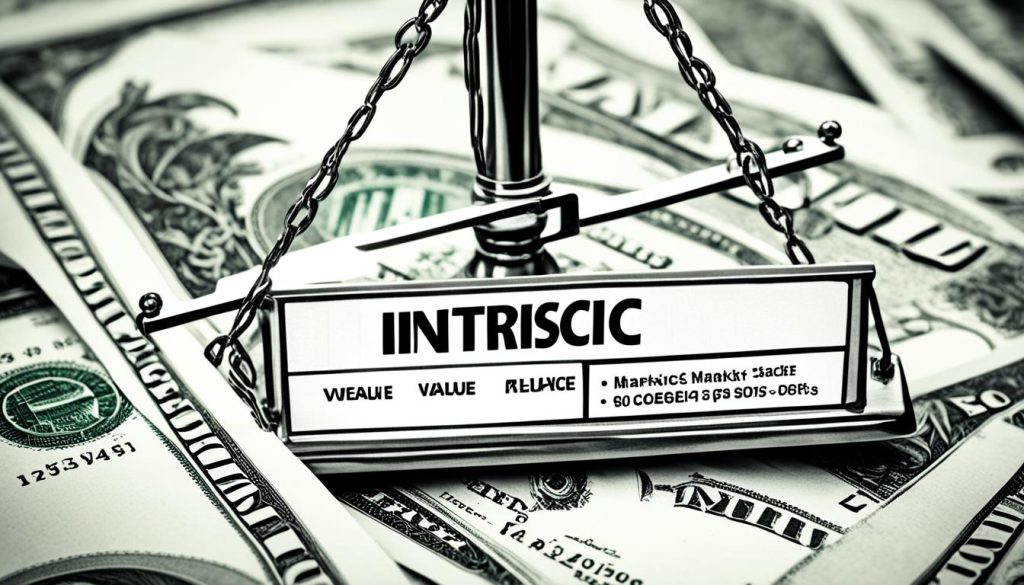Valuing a wealth management firm is a crucial step in various business processes, such as mergers and acquisitions, fundraising, financial reporting, and estate planning. Understanding the worth of a wealth management company requires careful evaluation of several factors and employing effective valuation techniques. In this guide, we will explore the methods for determining the value of a wealth management firm, the factors influencing their valuation, and the role of a trusted partner in this process.
Key Takeaways:
- Valuing a wealth management firm is essential for informed decision-making in various business processes.
- Determining the value involves assessing factors such as financial performance, assets, liabilities, growth prospects, and market conditions.
- Valueteam is a trusted firm specializing in comprehensive and accurate valuation services for wealth management firms.
- They employ tailored valuation methods and maintain confidentiality while staying compliant with regulatory requirements.
- Understanding intrinsic value is crucial in value investing, as it helps identify undervalued opportunities in the market.
Understanding Company Valuation
Company valuation plays a vital role in assessing the economic value of a company. It involves evaluating various factors, including financial performance, assets, liabilities, growth prospects, and market conditions. By analyzing these key components, companies can determine their true worth, which is crucial for making informed decisions.
Valuing a company holds immense importance in different business scenarios. For instance, during mergers and acquisitions, understanding the value of the target company helps negotiate deals and determine fair exchange ratios. It is also essential in fundraising, as investors need to know the value of a company before committing capital. Additionally, accurate valuation is essential for financial reporting and estate planning purposes.
When valuing a company, financial performance is a critical factor to consider. It provides insights into the company’s profitability, revenue growth, and cash flow generation. These metrics help gauge the company’s ability to generate future earnings, which directly impacts its value. Analyzing a company’s assets and liabilities is equally important, as it provides a snapshot of its financial health and risk profile.
Growth prospects are another crucial aspect of company valuation. Assessing a company’s potential for future expansion and market opportunities helps determine its long-term value. Market conditions, including industry trends, competitive landscape, and macroeconomic factors, also play a significant role in assessing a company’s value. The valuation process involves analyzing these external factors to understand the company’s position in the market and its potential for sustained growth.
“Company valuation is a comprehensive analysis that combines financial performance, asset evaluation, growth prospects, and market conditions to determine the economic value of a company. It provides a holistic understanding of a company’s worth and plays a crucial role in key business decisions.”
Ultimately, understanding company valuation enables businesses to make strategic decisions, whether it’s pursuing mergers and acquisitions, attracting investors, or planning for the future. By assessing the importance of company valuation, companies can gain valuable insights into their economic value and position themselves for success.
The Role of Valueteam in Valuation Process
Valueteam is a trusted partner in the valuation process. With their expertise and experience, they understand the nuances of valuation and provide comprehensive solutions tailored to the specific needs and industry of their clients.
Valueteam employs a range of valuation methods to ensure accurate assessments. This includes market-based valuation, income-based valuation, and asset-based valuation. By utilizing these comprehensive approaches, Valueteam can provide a holistic view of the company’s worth.
Confidentiality is of utmost importance to Valueteam. They prioritize maintaining the privacy of their clients’ information throughout the valuation process. Their commitment to confidentiality helps foster trust and ensures sensitive business details remain protected.
Valueteam also stays up-to-date with regulatory requirements and accounting standards. This ensures that their valuation services are in compliance with industry regulations, providing clients with peace of mind and assurance that their valuation is accurate and reliable.
Whether you are a company seeking a reliable valuation partner for mergers and acquisitions, fundraising, financial reporting, or estate planning, Valueteam’s expertise, experience, and commitment to confidentiality and regulatory compliance make them the ideal choice.

The Significance of Intrinsic Value in Value Investing
When it comes to value investing, understanding the significance of intrinsic value is paramount. Intrinsic value represents the true worth of an asset or investment, irrespective of its market price. Unlike market value, which can fluctuate based on factors such as supply and demand, intrinsic value is grounded in fundamental factors that determine the long-term potential of an investment.
These fundamental factors include earnings potential, cash flows, and asset quality. By analyzing these factors, investors can gain insights into the underlying value of an investment and identify opportunities that may be undervalued by the market.
Earnings potential plays a crucial role in determining intrinsic value. Healthy and consistent earnings growth indicates the potential for future profitability, which can contribute to the asset’s intrinsic value. Similarly, assessing cash flows helps gauge the asset’s ability to generate sustainable revenue over time, which further adds to its intrinsic value.
“Understanding and effectively assessing intrinsic value is crucial in value investing”
Furthermore, the quality of the asset’s underlying assets is another important consideration. Evaluating the asset’s asset quality, such as the stability of its balance sheet and the value of its tangible and intangible assets, provides additional insights into its intrinsic value.
Value investing involves identifying assets that are undervalued by the market and have the potential for long-term growth. By focusing on intrinsic value rather than market price, value investors can spot investment opportunities that may be overlooked by others.
Assessing intrinsic value requires a thorough analysis of the asset’s fundamental factors, such as earnings potential, cash flows, and asset quality. By understanding the significance of intrinsic value, value investors can make informed decisions that align with their investment goals and strategies.
Example:
An example that illustrates the importance of intrinsic value in value investing is Warren Buffett’s investment in Coca-Cola. Buffett recognized the enduring strength of Coca-Cola’s brand, its consistent earnings potential, and strong cash flows, which led him to invest in the company. By focusing on the intrinsic value of Coca-Cola rather than its market price, Buffett generated substantial returns and showcased the power of value investing.

Calculating Intrinsic Value
When determining the true worth of a company, calculating its intrinsic value is a crucial step. Several methods can be used to perform this calculation, each offering unique insights into the company’s value.
One commonly used method is discounted cash flow (DCF) analysis, which estimates the present value of a company’s future cash flows. DCF takes into account the company’s projected cash flows over a specific time period and discounts them to their present value using a discount rate. This method provides a comprehensive assessment of a company’s potential for generating future cash flows.
Another approach is earnings-based valuation. This method compares a company’s earnings to its stock price, typically by using metrics like the price-to-earnings (P/E) ratio or the earnings yield. By relating earnings to the market price, investors can gauge whether a company is undervalued or overvalued.
Asset-based valuation is another technique used to calculate intrinsic value. This method evaluates the company’s assets and liabilities to determine its net asset value. By considering the company’s tangible and intangible assets, as well as its debts, asset-based valuation provides insight into the underlying value of a company.
These methods, whether it’s discounted cash flow analysis, earnings-based valuation, or asset-based valuation, provide investors and analysts with different perspectives on a company’s intrinsic value. By considering factors such as present value, future cash flows, P/E ratio, and earnings yield, one can better understand the underlying worth of a company.

Illustrating Intrinsic Value with Examples
Understanding intrinsic value is crucial for investors seeking profitable opportunities in the stock market. When a stock trades below its intrinsic value, it presents a practical example of undervaluation and an enticing case study for investors. One such example is Warren Buffett’s investment in Coca-Cola, which highlights the enduring strength of the company’s brand valuation.
Warren Buffett, known for his successful value investment strategy, recognized the potential of Coca-Cola’s enduring brand. He understood that the company’s brand value is a significant asset that contributes to its long-term success and market dominance. By considering the enduring strength of the Coca-Cola brand, Buffett was able to make a smart investment decision that generated substantial returns.
“I don’t look to jump over seven-foot bars; I look around for one-foot bars that I can step over.”
This practical example of Warren Buffett’s investment in Coca-Cola showcases the importance of recognizing intrinsic value in the stock market. It emphasizes the need to assess the enduring strength of a brand when valuing a company. By considering the brand valuation of Coca-Cola, Buffett was able to identify an opportunity and make a profitable investment decision.

The enduring strength of a brand, as exemplified by Warren Buffett’s investment in Coca-Cola, is an essential factor to consider when assessing intrinsic value. It highlights the importance of brand valuation and its impact on a company’s overall worth. By analyzing the strength and value of a brand, investors can make informed decisions and unlock significant returns.
Conclusion
Accurately determining the valuation of a wealth management firm is crucial for making well-informed decisions about mergers and acquisitions, fundraising, financial reporting, and estate planning. In this complex process, Valueteam stands out as a reliable partner with their expertise, experience, and commitment to accuracy.
Valueteam understands the worth of a business and employs comprehensive valuation methods tailored to the specific needs and industry of their clients. Their team of professionals ensures the determination of a company’s true value through meticulous analysis and diligent research. Trusting Valueteam as a valuation partner provides businesses with confidence in the accuracy of their valuation.
When it comes to important financial decisions, having a reliable partner like Valueteam can make all the difference. Their commitment to accuracy and determination to uncover the true value of a wealth management firm sets them apart. Whether it’s for mergers and acquisitions, fundraising, financial reporting, or estate planning, Valueteam’s expertise ensures businesses have the reliable valuation insights they need to succeed.




No comments! Be the first commenter?